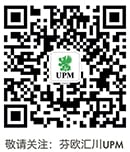(UPM, Westmont, IL, December 20, 2007) - UPM has joined the Environmental Paper Assessment Tool® (EPAT), an on-line report card system that assesses the environmental aspects of paper products.
The EPAT was designed and developed in North America by the Paper Working Group - a collaboration of Metafore and 11 leading companies with the goal of making environmentally preferable paper products more widely available and affordable.
“Now, more than ever, our North American customers are looking for ways to identify paper suppliers that have made sustainability a priority. This is sometimes difficult to do without a user-friendly tool that measures the environmental features of paper. The EPAT scorecard provides a reliable basis for that environmental comparison over the entire lifecycle of papermaking, and UPM is pleased to be using the new tool” said Phil Riebel, Director, Environmental Affairs, UPM North America.
Paper suppliers who have registered with the EPAT will provide environmental information and data pertaining to the Paper Working Group’s seven key elements that define environmentally preferable paper: efficient use and conservation of raw materials; minimizing waste; conservation of natural systems; clean production; community and human well-being; credible reporting and verification; and economic viability.
David Ford, President and CEO of Metafore, said the list of companies involved in developing the tool gave credibility to the project; several are Fortune 500 players. “There was an obvious need and desire for this kind of precise and dependable tool to help companies make good, environmental decisions as to which suppliers to buy paper from,” said Mr. Ford. “We are pleased to have world-class paper suppliers like UPM joining the initiative.”
The EPAT looks at the total environmental footprint of paper. “It goes much beyond the use of recycled fiber and forest certification—both important elements to consider, but not the only elements in the lifecycle of paper,” said Mr. Riebel. “This tool allows customers to make decisions about the environmental sustainability of the paper they are purchasing by considering over 25 different environmental elements related to papermaking."
The EPAT scorecard already has earned the confidence of some of the world’s leading publishers. “We are very pleased UPM, after a period of input and discussion, will be integrated into the EPAT process,” said David Refkin, Director of Sustainable Development for Time Inc. “This tool can be invaluable to customers in evaluating the environmental performance of their paper suppliers and the entire supply chain.”
Time Inc. has been formally evaluating the environmental performance of suppliers for several years. “Time Inc. looks forward to working with UPM as we implement the EPAT tool,” added Mr. Refkin. “Our hope is that many buyers of paper will now work with the tool.”
David Schirmer, Vice President and General Manager of Hearst Enterprises, said: "We are delighted that UPM has decided to embrace EPAT. It is an important tool in our quest to use paper which comes exclusively from sustainable and environmentally responsible sources. UPM's involvement is a major step in EPAT's gaining widespread acceptance."
Metafore, a non-profit environmental consulting company, coordinated and lead the EPAT initiative on behalf of the Paper Working Group. For more information, please go to www.epat.org or www.metafore.org
For more information, please contact:
Sharon Pond, Communications Manager, UPM North America, phone 1-630-386-2681 or email, sharon.pond@upm-kymmene.com
David Ford, President and CEO, Metafore, phone 1-503-224-2205.
